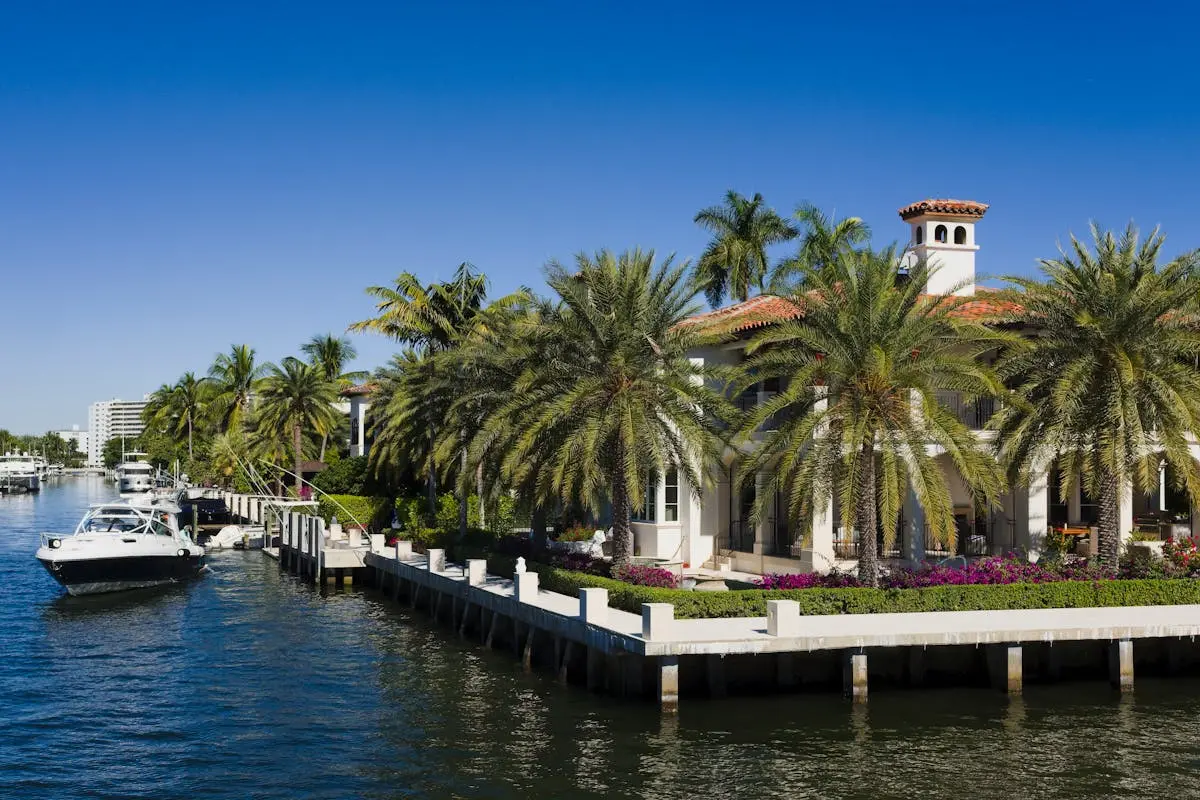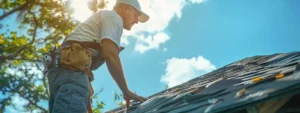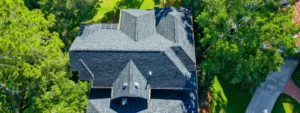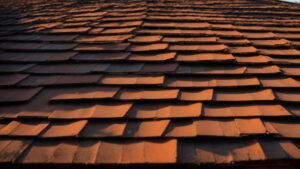Common Issues with Low Slope Roofs in Florida
Florida’s climate can pose challenges for low slope roofs. The common issues homeowners face with low slope roofs in Florida include:
- Water Ponding: Due to the flat surface, water can accumulate on low slope roofs, leading to leaks and structural damage.
- Algae and Mold Growth: The humid climate in Florida encourages the growth of algae and mold on low slope roofs, which can deteriorate the roof material.
- Poor Drainage: Inadequate drainage systems on low slope roofs can worsen water ponding issues, causing additional damage over time.
Being aware of these common issues is crucial for Florida homeowners looking to convert their low slope roofs to metal roofs for better durability and weather resistance.
Advantages of Converting to a Metal Roof
Installing a metal roof in Florida can offer several benefits for homeowners. Metal roofs are durable and can withstand harsh weather conditions better than traditional roofing materials. They are also energy-efficient, reflecting the sun’s heat to keep your home cooler. Additionally, metal roofs require less maintenance than other roofing types, saving you time and money in the long run.
Long-Term Cost Savings
Metal roofs can significantly lower your energy costs over time since they are reflective and can reduce the amount of heat that enters your home. According to the Metal Roofing Alliance, a metal roof can save you up to 25% on your energy bills compared to traditional roofing materials like asphalt shingles. They also have a longer lifespan, with some lasting 50 years or more. This means that while the initial investment may be higher, the long-term savings on maintenance and energy costs can make a metal roof a cost-effective choice for Florida homeowners.
Improved Energy Efficiency
When converting from a low slope roof to a metal roof in Florida, you can significantly enhance your home’s energy efficiency. Metal roofs reflect sunlight, helping to reduce heat absorption into your home. This reflects in lower energy bills as your cooling system doesn’t need to work as hard to maintain a comfortable temperature indoors. Besides saving on energy costs, improved insulation from a metal roof can also make your home more comfortable year-round.
Durability in Florida’s Climate
Metal roofs are highly durable and better suited for Florida’s climate compared to low slope roofs. Metal roofs can withstand extreme weather conditions, such as hurricanes and heavy rain, common in Florida. They have a longer lifespan and require less maintenance than low slope roofs, making them a cost-effective choice for homeowners in the long run. Metal roofs also provide better protection against potential water damage, mold, and mildew, common issues in Florida due to the high humidity levels.
Enhancing Home Aesthetics
Metal roofs can significantly enhance your home’s appearance. They provide a modern and sleek look that can improve curb appeal and increase the overall value of your property. In addition to their aesthetic benefits, metal roofs are durable and long-lasting, making them a practical choice for homeowners looking to upgrade their homes in Florida.
Importance of Proper Installation
A proper installation of your new metal roof is crucial for ensuring its durability and longevity. Incorrect installation can lead to potential issues down the line, such as leaks, poor insulation, and even structural damage to your home. Make sure to hire a reputable roofing contractor who is experienced in low slope roof to metal roof conversions. Their expertise will guarantee that your new roof is installed correctly, providing you with peace of mind and protection for years to come.
Considerations for Choosing Metal Roofing Materials
When choosing metal roofing materials for your low slope roof to metal roof conversion in Florida, there are a few key considerations to keep in mind. Here are some important factors to consider:
- Durability: Metal roofs are known for their longevity and ability to withstand harsh weather conditions, such as hurricanes and heavy rains commonly experienced in Florida.
- Energy Efficiency: Metal roofs can help reduce energy costs by reflecting sunlight and keeping your home cooler, especially in the hot Florida climate.
- Aesthetics: Consider the different types of metal roofing materials available, such as steel, aluminum, or copper, and choose one that complements the style of your home.
- Cost: While metal roofs may have a higher upfront cost compared to traditional roofing materials, they often require less maintenance and can last much longer, making them a cost-effective choice in the long run.
By carefully considering these factors, you can select the right metal roofing materials for your Florida home to ensure a safe, energy-efficient, and visually appealing roof conversion.
Professional Roofing Services in Florida
If you’re considering professional roofing services in Florida, you’ll find a range of options available to help ensure your roof is well-maintained and efficient. Roofing services can include assessments, repairs, and replacements, all vital aspects of keeping your home safe and protected from the elements. In Florida, where weather conditions can be harsh at times, having a reliable roofing service provider can give you peace of mind and help extend the lifespan of your roof.
Key Steps for a Successful Roof Conversion Process
Make sure to hire a qualified and experienced roofing contractor for your roof conversion project. This is essential to ensure that the work is done correctly and efficiently, minimizing any potential issues in the future. Obtain the necessary permits from your local government before starting the conversion process. Failure to secure permits can result in fines or delays. Evaluate the condition of your existing roof to determine if any repairs are needed before the conversion. Addressing any issues beforehand can prevent future problems with your new metal roof. Choose the appropriate materials for your metal roof based on your budget and preferences. You can select from a variety of metal roofing options, each with its own advantages and price points. Plan for proper insulation during the conversion process to ensure energy efficiency and comfort in your home. Adequate insulation can help regulate temperature and reduce energy costs. Regular maintenance of your new metal roof is crucial for its longevity and performance. Be sure to schedule routine inspections and address any maintenance issues promptly to protect your investment.





